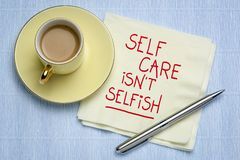Stress
Self-Care for Difficult Times
When it is most important, don’t ignore it.
Posted December 21, 2020 Reviewed by Ekua Hagan

Illness. Concerns about COVID. Money troubles. Working longer hours, if you can work. Family concerns. Lack of sleep and exercise. Inability to see friends and be with those you love. This year has been challenging in so many ways, and now that the holidays are upon us, the stress and worry seem heightened all around. It’s hard to enjoy the happy spirit of holidays when you are worried about what’s happening and what might be coming next.
When you are stressed, or anxious, or worried, your regular defenses – be they mental, emotional, or physical – tend to wear down. Something that might not bother you as much when you are at your best may upset you when you aren’t feeling strong. An issue you might be able to overlook or consider in context in regular times becomes a huge deal, and you find yourself overreacting and getting more upset than is warranted.
When you are facing difficult times, it is most important to exercise self-care and find ways to support yourself mentally, emotionally, and physically. It is the hardest time to do it – who can focus on taking care of themselves when the world is falling apart and everything around you is difficult? But this is when you need to step back and consider the ramifications of not doing so; the problems don’t go away, they just build up and up and up until the explosion happens, either by depression, anger, or lashing out at someone.
When the going gets rough, the tough might get going, but more importantly the tough need self-care. Recognizing your limitations and making a determination to take some steps when you first realize you need help can make a big difference in your ability to manage yourself and your circumstances most effectively.
You might not have the time, nor the money or the energy, but you have to find ways to do something. What choices do you have for self-care and how could you incorporate them this holiday season?
1. Take breaks. Yes, you have a million things to do and not enough time to do them. Breaks? Where would those come in? It could be as simple as pushing yourself back from your computer, closing your eyes for 30 seconds, and breathing deeply. It could be going outside on your porch, or backyard, and just doing some deep breathing. It could be sitting in the bathroom on a closed toilet, hiding from your family while you take in deep breaths. Break the cycle. Break the stress. Break the need to keep going and going until you drop. Just break.
2. Breathe. And breathe some more. Learning to breathe correctly can be very beneficial. Imagine your stomach filling up with air as you take in deep breaths through your nose, and then exhale and shrink your stomach as you breathe out through your mouth. The mind cannot focus on two things at once so spend some time focusing on nothing but your breath.
3. Move – even just a little. Shake out your body from time to time. Roll your shoulders, your wrists, your ankles, and anything else you can. Bend over and lean back. Lean from side to side. Don’t do anything that you are not physically capable of, and don’t stress yourself, but just move your body to get the blood flowing.
4. Choose your food wisely. Feeling down or overwhelmed can lead to overeating – and normally not of the best sort of food. If you can digest it, plain popcorn or carrots or nuts might be better than chips or soft drinks. And when you put anything in your mouth, even the smallest morsel, pause before you do so and give thanks for what you are able to receive. Take the moment to pause, and focus on the food and the taste. Chew well. Allow eating to be a conscious activity that centers you.
5. Do something nice for someone: you. Oftentimes, especially during the holidays, you can spend your time finding ways to make it nicer for everyone around you. Remember to give yourself a gift too. It doesn’t have to be monetary or expensive; it could be the gift of a compliment using your self-talk, time spent watching something you enjoy on TV, or reading a book, or taking a walk. It could be calling a friend you miss or volunteering somewhere that matters to you. Think about yourself along with others and consider something that would be meaningful to you.
These times are tough in many ways for many, many people. None of these suggestions will take away the issues you might be facing, and they aren’t panaceas, but if you practice self-care and put an emphasis on it, even in small ways, you might find your ability to manage what’s happening just a tiny bit easier.




